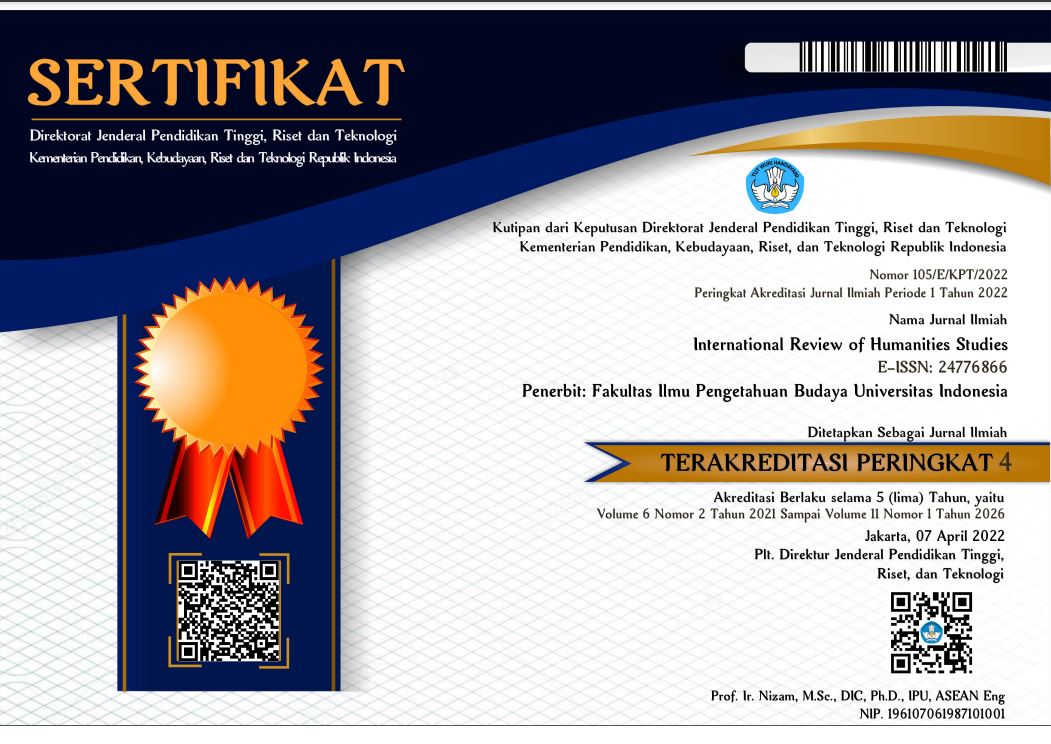International Review of Humanities Studies

Abstract
Nigeria is a country reputed for its rich and diverse cultures from the multi-ethnic nationalities that make it up. Indeed, the diversity of traditions and cultures are evidenced in the nation’s more than four hundred and seventy (470) tribes. It is in the bid to ensure that each cultural entity is preserved, projected and promoted, that Nigeria has a cultural policy. The cultural policy is decidedly synonymous with the arts and artists since the arts and artists mainly generate the bulk of what materially, at least, constitutes culture. Of course, culture is derived from material and immaterial products all which are products of the creative ingenuities of artists. It is in line with this reasoning that this paper is written, to determine to what extent the Nigerian Cultural Policy has attended to the needs of the arts and artists, with particular emphasis on the performing arts. The performing arts in every culture make up the major part of such Culture’s creative and entertainment industry hence this paper is embarked upon to determine to what extent the policy has accommodated the needs of the performing arts. This is done through a detailed analytical assessment of the cultural policy. Recommendations are then made based on the conclusions drawn from the analysis.
References
Abdulahi, Denja. “Teaching an Old Dog a New Trick: Reviewing Government’s Interventions in the Nollywood Industry,” In Ayakoroma, Barclays Foubiri. & Akoh, Ameh. Dennis (Eds.). Repositioning Nollywood for the Promotion of Nigeria’s Cultural Diplomacy & National Security. Ibadan. Kraft Books Ltd. 2015. Pp. 1-11.
727 Acholonu, Catherine Obianuju. Africa, the New Frontier: Towards a Truly Global Literary Theory for the 21st Century. Keynote Lecture to the Association of Nigerian Authors (ANA). Owerri. Afa Publications “Cultural Policy for Nigeria.” In Sule Bello (Ed.) Culture and Decision Making in Nigeria. Lagos. National Council for Arts and Culture, (NCAC). 1991. Pp. 189- 204.
Hall, T. Edward. The Silent Language, (https://en.wikipedia.org>wiki>pol) MacBride, Sean Commission, Many Voices, One World. Ibadan. University Press. 1981.
Isidienu, Ifeyinwa Cordelia. “The Impact of Culture on the Development of a Child,” (http://dx.doi./org/10.431/ujah.vl8i2.9). UJAH, Unizik Journal of Arts and Humanities, Special Edition. 2017. Pp.163-178.
Mohammed, Sokoto Abubakar. “The Cultivation of Cultural Links with the Africans in the Diaspora as a Concept and Strategy for Preserving, Promoting and Presenting our Culture to the World,” In Sule Bello (Ed.), Culture and Decision Making in Nigeria. Lagos, National Council for Arts and Culture (NCAC). 1991. Pp.152-165.
Olukoju, Ayodeji. “Nigeria’s Cultural Tapestry and the Challenge of Development” In Moses Akinola Makinde (Ed.) Nigeria’s Cultural Tapestry. Ibadan. The Nigerian Academy of Letters. 2013. Pp. 2-38.
Nnolim, Charles. E. “Literature, the Arts, and Cultural Development,” In Steve Ogude (Ed.). Annals of the Nigerian Academy of Letters. Ibadan. The Nigerian Academy of Letters. 2002. Pp. 63-94. Shakespeare, William. Merchant of Venice. London. London. 1964.
Tosh, Peter. “African,” in Equal Rights. Columbia Records, 1977.
Recommended Citation
Anyanwu, Chukwuma
(2019)
"NIGERIA’S CULTURAL POLICY AND THE NEEDS OF THE PERFORMING ARTS,"
International Review of Humanities Studies: Vol. 4:
No.
2, Article 14.
Available at:
https://scholarhub.ui.ac.id/irhs/vol4/iss2/14


